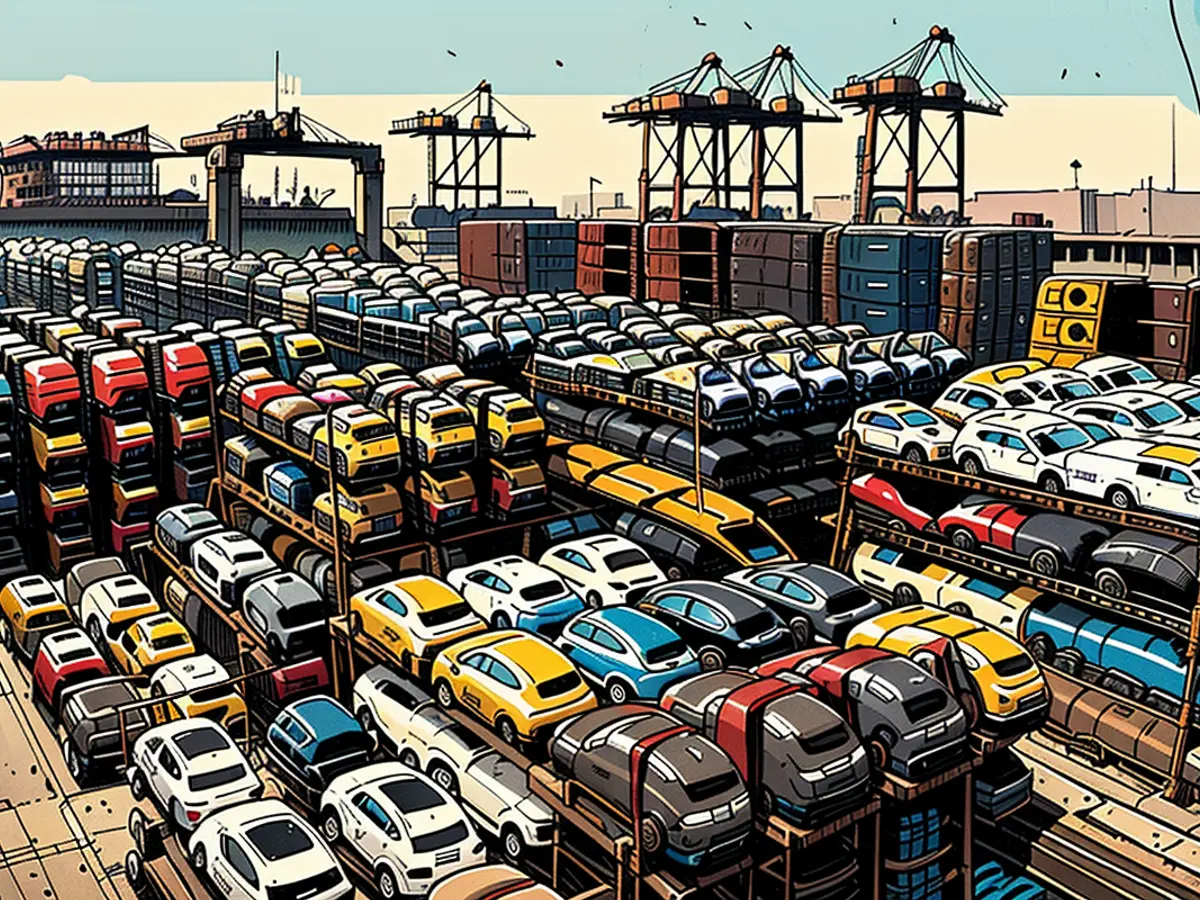The German economy expresses concerns over potential customs complications with China.
The economic powerhouse of Germany is keeping a watchful eye on the EU's ongoing spat with China over tariffs on electric vehicles. As world trade barriers continue to rise, executives from German corporations are uneasy about the possibility of a tariff war with China, according to Volker Treier, head of foreign trade at the German Chamber of Industry and Commerce (DIHK). In lieu of intensifying protectionism, DIHK believes that trade incentives would serve their purposes better. Treier concluded by stating that the widening divide between Europe and China is placing a strain on global trade and eroding the competitiveness of various sectors within the German economy.
The nonpartisan Institute of the German Economy (IW) maintains that the EU's retaliatory tariffs on Chinese electric vehicles are indeed permissible under international trade regulations, despite the potential for an escalating trade dispute. China could face countermeasures, even if it's against their best interests to do so.
Following a crucial vote, the European Commission received the backing it needed from EU member states to implement the proposed tariffs on Chinese electric vehicles. Meanwhile, negotiations with the Chinese government will remain ongoing, as per the statement from the Brussels authority. The Chinese Ministry of Commerce had appealed to the EU, via state media, to defer the implementation of tariffs in order to avert a trade conflict.
In diplomatic circles, it has been reported that the German government voted against the implementation of tariffs. Federal Chancellor Olaf Scholz is said to have exercised his veto power, overruling ministers Robert Habeck and Annalena Baerbock from the Greens.
German diplomats have been advocating for a peaceful resolution to the EU-China tariff dispute, given Germany's significant economic ties with both parties. Despite Germany being an EU member state, some German corporations, such as BMW and Mercedes-Benz, have substantial operations in China and could be adversely affected by escalating tensions.








